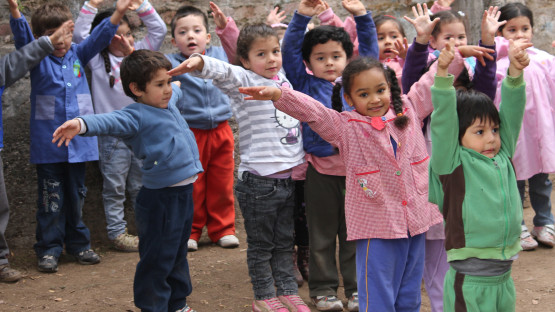In the last 50 years, food availability has increased in Latin America and the Caribbean, making a wider range of food easily accessible. Unfortunately, some of this food has very poor nutritional value (high in fat and sugar) and overconsumption, combined with less physical activity, has led to a growing trend in overweight and obesity among children. At the same time, undernutrition is still prevalent in many countries.
Obesity and undernutrition represent a double burden of malnutrition for many Latin American and Caribbean countries. Rising trends of overweight and obesity among preschool and school children are reported throughout the region and threaten the health of future generations. Obesity is one of the major contributors to chronic disease development later in life.
Through the IAEA's technical cooperation programme, projects are being implemented in cooperation with Latin American Member States to use stable isotope techniques to monitor body composition, i.e. muscle and body fat in children, to better understand the reasons why children become overweight and obese. Deuterium, a stable isotope of hydrogen but with one proton and one neutron, is found in nature and in the human body, and is used to determine the body's water content. Body water can then be used to calculate body muscle and fat mass. Another stable isotope technique, using two stable isotopes (deuterium and oxygen-18) can be used to measure physical activity in children to get information about whether children spend most of their time sedentary or physically active.
TC assisted project studies on body composition and energy expenditure have led to the development and evaluation of programmes to improve diet and increase exercise for pre-school children. Projects have also provided data on the prevalence of overweight and obesity that will be used as baseline data for intervention programmes in schools.
Programmes to reverse the current trends of overweight and obese children are essential to socioeconomic development in Latin America. Combating overweight and obesity in the region will contribute to a more stable and secure future for the next generation.


